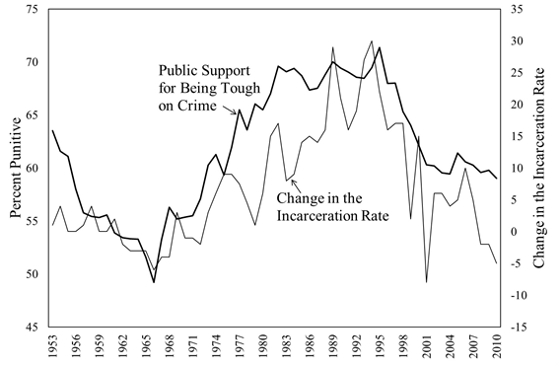A Washington Post writer covers a recent conference where conservatives joined liberals in arguing that in increase in the minimum wage would benefit the economy. Whether this gains traction in Congress is unclear. One of the arguments made is that higher wages leads to less demand for social services. The government may well be subsidizing businesses, allowing them to pay low wages with these programs.
One conservative even argued that increased wages might be good for the Republican Party's competitiveness. The wealthier people are, the more likely they are to pay income taxes, and the more likely they are to adopt fiscally conservative positions, which might make them consider voting Republican.
- Click here for the article.
Democrats have made the argument that an increase is morally right and that the only thing standing in the way is corporate greed. That may be so, but it hasn’t won them enough Republican support to get the increase through Congress. But what if Democrats were to make a free-market argument that a higher minimum wage would shrink the federal government and reduce the welfare state?
That’s the argument Ron Unz made to Nader’s gathering. Unz, a wealthy businessman known for his 1994 Republican primary challenge to California Gov. Pete Wilson and his fight against bilingual education, has serious conservative credentials, most recently as publisher of the American Conservative magazine. But now he’s leading a ballot measure in California to raise the minimum wage to $12 an hour.
“The government spends over $250 billion a year in social welfare programs aimed at the working poor,” he said, addressing the group via Skype. “If we simply made the working poor much less poor by raising their wages to a much more reasonable level, a lot of that money would be saved, probably in the range of $40 to $50 billion a year.” The $250 billion spent on welfare for the working poor, Unz said, amounts to a “massive subsidy for businesses” that are paying less than a living wage and “forcing taxpayers to make up the difference.”
But what about the Congressional Budget Office study this year predicting that increasing the minimum wage to $10.10 would cost 500,000 workers their jobs? Actually, Unz argued, the study found that 98 percent of minimum-wage workers would benefit from a wage increase, while only 2 percent would lose their jobs. Further, he said, the higher minimum wage would mean a reduction in Mitt Romney’s “47 percent” — those who, Romney said, won’t consider voting Republican because they don’t pay income taxes — as these new taxpayers become “open to a traditional Republican conservative economic message.”




